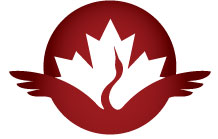I would like to think that Kim Jong Un listened to my advice and hired a Don Draper type to sex up the regime’s image
abroad. Yes, such visions of grandeur. Bringing us back to reality, however, the DPRK has certainly gone to some great lengths to ameliorate its image abroad, to the point that some have described it as an “extreme makeover.” It all perhaps began with Kim Jong Un complaining about the general disrepair of amusement parks (“pathetic” is supposedly the word used). One has to wonder in opaque North Korea whether Kim was referring to simply the amusement park itself, or really criticizing the way that his father ran the country.

Meet the new boss
Then we have Kim the 3rd walking around accompanied by a mystery woman who we later find out he has married – perhaps even against his father’s wishes. Even if this allegation of filial impiety is not true, Kim Jong Il never trotted out his women in public.
The implication of this rather public announcement is enormous: again, Kim Jong Un is not his father! Then we have a well publicized concert involving trademark infringement of the Mickey Mouse variety and mini-skirts that would have shocked O Jin U if he were still around. We receive word of things like prisoner amnesties. Finally, Ri Yong Ho is sacked. The official cause is illness; the word on the street is power struggle, including fanciful notions of firefights in the inner sanctums of Pyongyang. Ri Yong Ho was supposedly one of the capos in the Kim Jong Il regime. Getting rid of someone like him again is clear signal that a new boss has rolled into town.
At the end of the day, this branding exercise seems a clear play to contrast Kim Jong Un from Kim Jong Il. Perhaps the rumours that Kim Jong Un (and Jang Song Thaek behind him) really want to open the country up. The evidence so far, doesn’t suggest that yet: the border hasn’t been this controlled since the 2008 Olympics and the kwan-li-so system still exists. What isclear is that the regime has, six months after his death, buried Kim Jong Il, set up his statue right beside Kim the 1st, and has all but announced that his era is over. Read the rest of this entry »

 Today, the United Nations World Food Programme (WFP) celebrates its 50th anniversary. For half a century, WFP has been on the front lines of humanitarian situations throughout the world and provided food to more than 100 million of the world’s most vulnerable people. In November 1961, Canada was proud to support the founding of WFP and, today, Canada is the second biggest single country donor to WFP.
Today, the United Nations World Food Programme (WFP) celebrates its 50th anniversary. For half a century, WFP has been on the front lines of humanitarian situations throughout the world and provided food to more than 100 million of the world’s most vulnerable people. In November 1961, Canada was proud to support the founding of WFP and, today, Canada is the second biggest single country donor to WFP.
 [The World Council of Churches is an ecumenical fellowship of churches founded in 1948. Today the WCC brings together 349 Protestant, Orthodox, Anglican and other churches representing more than 560 million Christians in over 110 countries, and works cooperatively with the Roman Catholic Church. This post is taken from a WCC press release dated 27 June 2011. –CanKor.]
[The World Council of Churches is an ecumenical fellowship of churches founded in 1948. Today the WCC brings together 349 Protestant, Orthodox, Anglican and other churches representing more than 560 million Christians in over 110 countries, and works cooperatively with the Roman Catholic Church. This post is taken from a WCC press release dated 27 June 2011. –CanKor.]


